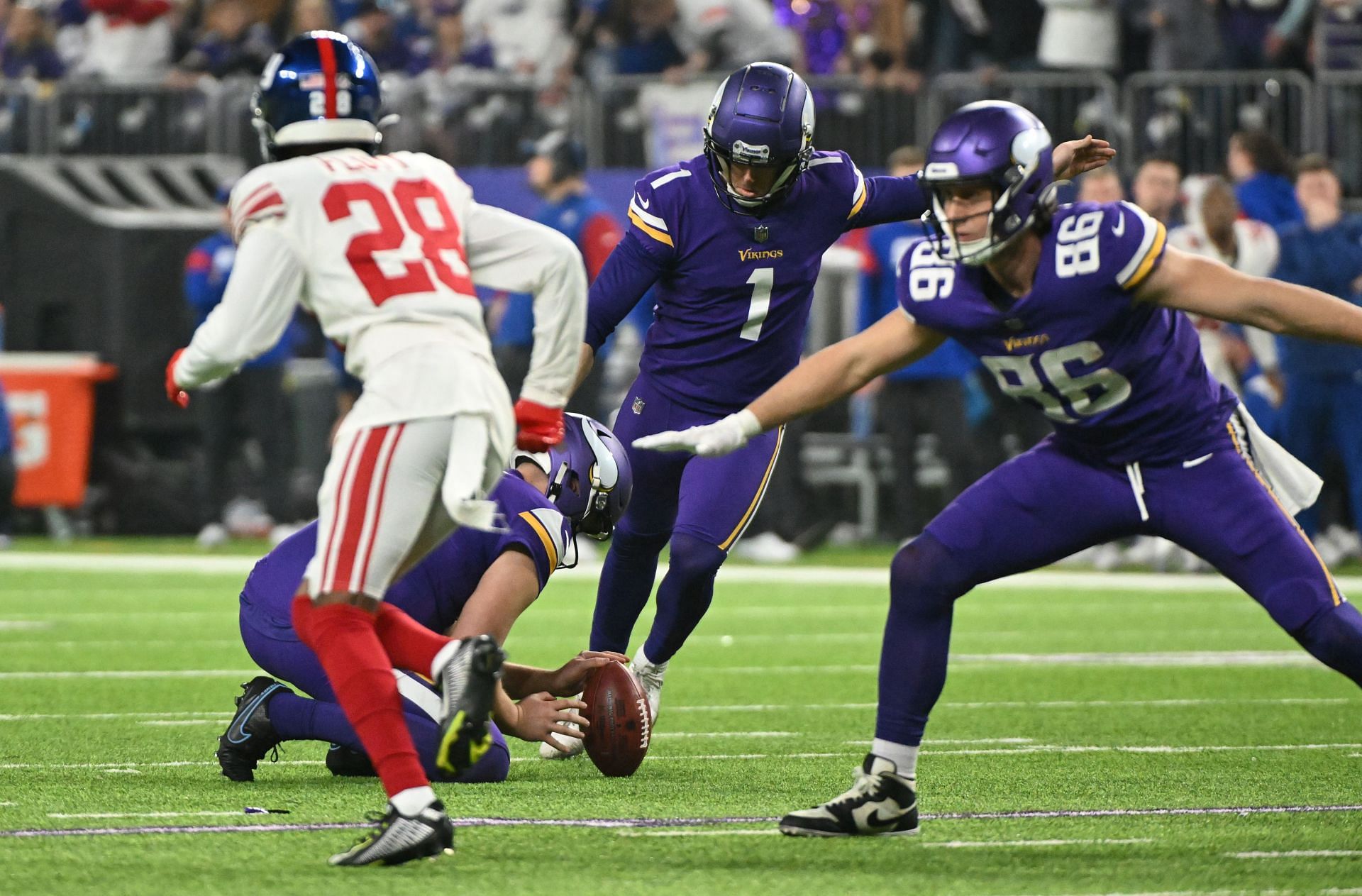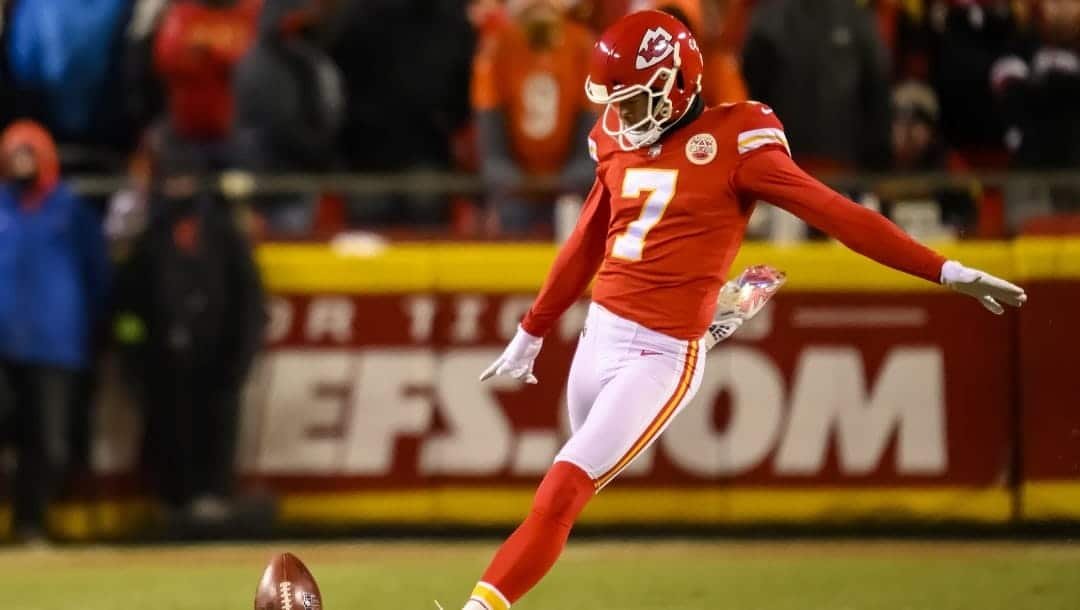Yes, NFL teams often have backup kickers. These backups are crucial for emergencies.
The role of a kicker in an NFL game is vital. One missed field goal can change the outcome. So, having a backup kicker is a smart move. These backups are usually other players who can kick if needed. Sometimes, teams sign a specialist for this role.
Backup kickers provide insurance against injuries or poor performance. This strategy ensures the team is always ready. Many fans wonder about this aspect of the game. Understanding it adds depth to their knowledge. So, let’s dive deeper into why NFL teams keep backup kickers and how they prepare for every scenario.
Introduction To Nfl Kickers
In the NFL, kickers play a crucial role in deciding games. Their accuracy and skill often determine the outcome of matches. Many fans wonder if teams have backup kickers. This blog will delve into the role and importance of kickers in the NFL.
Role Of A Kicker
A kicker is responsible for field goals, extra points, and kickoffs. Their primary task is to score points from long distances. Kickers also handle kickoffs, starting the game and each half. They have to ensure the ball lands in the right area. This task requires precision and consistency.
Importance In A Game
Kickers often decide the fate of close games. They can turn the tide with a successful field goal. Their role becomes crucial during the final moments. A missed kick can lead to a loss, while a successful one can secure a win. This pressure makes their role vital.
Without reliable kickers, teams struggle in tight situations. Their contributions often go unnoticed, but they are essential. Coaches rely on them to deliver under pressure.

Credit: www.sportskeeda.com
Primary Kicker Responsibility
The primary responsibility of a kicker in the NFL is crucial for a team’s success. A kicker’s role can determine the outcome of tight games. They must perform under intense pressure and maintain consistent accuracy.
Field Goals And Extra Points
Kickers are responsible for field goals and extra points. These points are vital for the team’s score. Field goals can be the deciding factor in close games. Extra points follow touchdowns and add one point to the team’s total.
Accuracy in these kicks is essential. A missed field goal or extra point can shift momentum. Consistency in these tasks is what teams expect from their primary kicker. They must be reliable in various weather conditions and from different distances.
Kickoffs And Punts
Though less common, kickers may also handle kickoffs and punts. Kickoffs start each half and follow scores. The goal is to pin the opposing team deep in their own territory. This requires a strong and accurate leg.
Punts, while usually the punter’s job, may be needed in emergencies. A kicker must be ready to step in if required. Both kickoffs and punts demand control and distance. They help the team maintain field position and defensive advantage.
Backup Kicker Concept
In the high-stakes world of the NFL, every position on the team plays a critical role. Among these positions, the kicker holds a unique spot. The kicker’s job can often determine the outcome of a game. This is where the concept of a backup kicker comes into play. Teams must consider having a backup plan in case their primary kicker cannot perform.
Need For A Backup
The primary kicker might get injured during a game. Illness or unexpected circumstances can also affect their performance. In these situations, a backup kicker becomes essential. This ensures the team has someone ready to step in and take over kicking duties.
Kicking is a specialized skill. Not every player can perform this task effectively. Having a reliable backup kicker can prevent potential game losses. This is why some NFL teams prioritize finding a competent backup kicker.
Common Practices
Many NFL teams do not have a dedicated backup kicker on their roster. Instead, they train other position players to handle emergency kicking duties. These players often include punters or even quarterbacks.
Some teams prefer to sign a backup kicker to their practice squad. This allows them to have a kicker ready if needed. This practice provides flexibility and ensures the team is prepared for any situation.
In some cases, teams might bring in free agent kickers for short-term contracts. This usually happens if their primary kicker is expected to miss multiple games. These strategies help teams manage the risk associated with relying on a single kicker.
Nfl Team Strategies
In the NFL, strategies for managing team rosters are crucial. Each player has a specific role, and backup plans are vital. Teams must prepare for any situation, including the need for a backup kicker.
Roster Management
Roster spots are limited in the NFL. Each team has only 53 players. Coaches must decide how to use these spots wisely. Most teams have one main kicker. They often do not carry a second kicker. Instead, they rely on other players if needed. This saves space for other positions.
Special Teams Dynamics
Special teams play a key role in the game. The kicker is a part of this unit. If the main kicker gets injured, the team needs a plan. Sometimes, the punter can take over kicking duties. This is not ideal but works in a pinch. Some teams train a backup kicker during practice. This player can step in during emergencies.
Training Backup Kickers
Training backup kickers is a key part of NFL team preparation. These athletes must be ready to step in at a moment’s notice. Effective training ensures they can perform under pressure. Below, we explore the practice regimens and skill development involved in training backup kickers.
Practice Regimens
Backup kickers follow strict practice regimens to stay in top form. Consistent practice builds muscle memory. This helps them perform well during games. A typical practice session might include:
- Warm-up exercises
- Stretching routines
- Field goal attempts from various distances
- Punt and kickoff drills
- Pressure situations with time constraints
Coaches often simulate game scenarios. This prepares the kicker for real game conditions. Practicing under pressure helps boost confidence. It also reduces errors during actual games.
Skill Development
Developing the skills of a backup kicker is crucial. They need to master various kicking techniques. This includes:
- Field goals
- Extra points
- Punts
- Kickoffs
Each type of kick requires different skills. Field goals and extra points need precision. Punts require distance and hang time. Kickoffs need both distance and accuracy. Coaches use video analysis to improve technique. They review each kick to find areas for improvement. This helps in refining the kicker’s form and consistency.
Strength training is also a key part of skill development. Building leg strength enhances kicking power. Core exercises improve stability and balance. Flexibility exercises prevent injuries and improve range of motion.
Here’s a simple table outlining a typical training schedule:
| Day | Activity |
|---|---|
| Monday | Field goals, Strength training |
| Tuesday | Punts, Flexibility exercises |
| Wednesday | Kickoffs, Video analysis |
| Thursday | Extra points, Pressure drills |
| Friday | Rest and recovery |
In conclusion, rigorous training ensures backup kickers are always ready. Consistent practice and focused skill development are key. This guarantees they can step up and perform when needed.

Credit: www.lips-mag.com
Challenges Of Backup Kickers
Backup kickers in the NFL face unique challenges. They must stay ready despite limited playtime. Their role is crucial, yet often overlooked. Let’s explore the challenges they face in detail.
Limited Opportunities
Backup kickers have few chances to showcase their skills. They might not play for entire seasons. This lack of playtime affects their game readiness.
Regular practice is essential, but it differs from actual game experience. Backup kickers must stay sharp without regular game action.
Here are some factors that limit their opportunities:
- Primary kicker’s performance
- Team’s injury status
- Game strategy
High Pressure Situations
When backup kickers do get a chance, the pressure is immense. They often play in high-stakes moments. These situations can decide the outcome of the game.
Imagine stepping in with the game on the line. The pressure to perform perfectly is overwhelming. This can affect even the most seasoned players.
Consider these high-pressure scenarios:
- Game-winning field goals
- Crucial extra points
- Long-distance kicks
Backup kickers must maintain composure and deliver under these conditions. It’s a challenging task, but essential for team success.
Case Studies Of Backup Kickers
Backup kickers in the NFL often remain under the radar. But their roles can be crucial. Some step in seamlessly. Others struggle under pressure. Let’s explore some case studies.
Successful Backup Stories
Many backup kickers have stepped up in big moments. For example, Ryan Longwell replaced the injured kicker for the Vikings in 2008. He made crucial kicks that helped the team win key games. Another example is Kai Forbath. He filled in for the Cowboys in 2020. He made several important field goals that season.
Notable Failures
Not all backup kickers find success. One example is Roberto Aguayo. He was a backup for the Bears in 2017. He missed several easy kicks and was soon released. Another case is Chandler Catanzaro with the Jets in 2019. He missed key kicks and faced heavy criticism. These failures show how challenging the role can be.

Credit: www.lips-mag.com
Future Of Backup Kickers In Nfl
The Future of Backup Kickers in the NFL is a topic of much debate. As the league evolves, teams are constantly seeking new ways to gain a competitive edge. One area of focus has been the role of the backup kicker. The question arises: will backup kickers become a standard part of NFL rosters?
Evolving Team Strategies
Teams are exploring different strategies to address the need for reliable kickers. One approach involves cross-training players in multiple positions. This strategy allows a team to have an emergency kicker without dedicating a roster spot solely to that role.
Another strategy is to carry a practice squad kicker. This kicker can be promoted to the active roster if needed. This provides flexibility and ensures that a team is not left vulnerable in critical moments.
Potential Rule Changes
Discussions about potential rule changes are ongoing. One proposed change is to allow teams to have an additional roster spot specifically for a backup kicker. This would ensure that all teams have a dedicated backup without sacrificing depth at other positions.
Another idea is to modify the injured reserve rules. This would enable a quicker return for kickers who suffer minor injuries. Such changes could make it easier for teams to manage their rosters and maintain a high level of play.
As the NFL continues to evolve, the role of the backup kicker will likely become more defined. Teams will need to adapt their strategies and consider potential rule changes to stay competitive.
Frequently Asked Questions
Do Nfl Teams Have Backup Kickers?
Yes, NFL teams often have backup kickers. They serve as insurance in case the primary kicker is injured or performs poorly.
How Do Nfl Teams Choose Backup Kickers?
Teams usually select backup kickers based on performance in tryouts. They also consider past experience and reliability under pressure.
Are Backup Kickers Used Often In Nfl Games?
Backup kickers are not used often in NFL games. They typically only play if the primary kicker is injured or struggling.
What Roles Do Backup Kickers Perform?
Backup kickers mainly practice with the team. They stay prepared to step in during games if needed.
Conclusion
Backup kickers are not common in the NFL. Teams rely on their main kicker. Injuries can force quick changes. Coaches prefer experienced players. Practice squads may include a kicker. Versatility matters. Some players can fill multiple roles. Teams balance risk and roster spots.
Fans see few backup kickers. Understanding these choices adds depth to the game.


